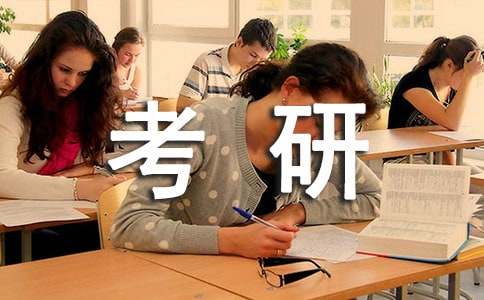- 相關(guān)推薦
2024英語(yǔ)真題對(duì)2015考研備考啟示
考研英語(yǔ)中閱讀理解是怎樣的一種存在?分值低,得分難,出題范圍廣是完型填空的特點(diǎn),主要考察的是邏輯關(guān)系和語(yǔ)義的理解。考研英語(yǔ)完型填空該如何復(fù)習(xí)?該如何拿高分呢?下面是小編整理的2024英語(yǔ)真題對(duì)2015考研備考啟示,僅供參考,希望能夠幫助到大家。

第六段
①But once we rip off the band-aid, tuck our smartphones in our pockets and look up, it doesn’t 12 so bad. ②In one 2011 experiment, behavioral scientists Nicholas Epley and Juliana Schroeder asked commuters to do the unthinkable: Start a 13 .③They had Chicago train commuters talk to their fellow 14 . ④When Dr. Epley and Ms. Schroeder asked other people in the same train station to 15 how they would feel after talking to a stranger, the commuters thought their 16 would be more pleasant if they sat on their own,” The New York Times summarizes. ⑤Though the participants didn’t expect a positive experience, after they 17 with the experiment, “not a single person reported having been embarrassed.”
①But once we rip off the band-aid, tuck our smartphones in our pockets and look up, it doesn’t 12 so bad.但是,一旦我們?nèi)拥舯Wo(hù)殼,收起手機(jī),抬頭看看周?chē)瑫?huì)發(fā)現(xiàn)事情也不會(huì)那么糟糕。
【邏輯分析】句首有but,邏輯相反。
【語(yǔ)言分析】
But once we rip off the band-aid, tuck our smartphones in our pockets and look up, it doesn’t 12 so bad.
once部分是時(shí)間狀語(yǔ)從句:
once we ①rip off the band-aid, ②tuck our smartphones in our pockets and ③look up(三個(gè)句子)
rip off:撕掉
band-aid n. 創(chuàng)可貼(這里指手機(jī));權(quán)宜之計(jì);臨時(shí)措施;應(yīng)急措施。(這里既可以指創(chuàng)可貼本意,即:拿著手機(jī),擋住自己,也可以指引申義,用手機(jī)來(lái)作為權(quán)宜之計(jì),避免與他人交流,暫時(shí)掩飾一下,到站就下車(chē),這里是一語(yǔ)雙關(guān)。)
tuck vt. 把...收起來(lái)
look up:抬頭看
But once we rip off the band-aid, tuck our smartphones in our pockets and look up, it doesn’t 12 so bad.
12空就是說(shuō),收起手機(jī),抬頭看看周?chē)娜耍@并不會(huì)怎樣如此的糟糕。所以,A正確。
12. A. hurt傷害 B. resist抵制 C. bend彎曲 D. decay解體;衰落
②In one 2011 experiment, behavioral scientists Nicholas Epley and Juliana Schroeder asked commuters to do the unthinkable: Start a 13 .在2011年的一個(gè)實(shí)驗(yàn)中,行為科學(xué)家尼古拉斯·艾普利和朱莉安娜·斯卡瑞德,要求通勤者去做這件不可想象的事情:即開(kāi)始一段交談。
【邏輯分析】句首無(wú)邏輯詞,邏輯一致,即:不要看手機(jī),看看周?chē)瑖L試與人交流,也不會(huì)怎么樣了。
【語(yǔ)言分析】
In one 2011 experiment, behavioral scientists Nicholas Epley and Juliana Schroeder asked commuters todo the unthinkable: Start a 13 .
commuter n. 通勤者(就是去上班的人)
unthinkable adj. 不可以想象的(= we rip off the band-aid, tuck our smartphones in our pockets and look up)
即:科學(xué)家讓人來(lái)做這個(gè)不可想象的事
13空是說(shuō)開(kāi)始什么,收起手機(jī),抬頭看看,是要與人交流。所以,B正確。
13. A. lecture講座 B. conversation交談 C. debate辯論 D. negotiation協(xié)商
③They had Chicago train commuters talk to their fellow 14 .他們(尼古拉斯·艾普利和朱莉安娜·斯卡瑞德)讓通勤者去和與他們乘同火車(chē)的乘客交談。
【邏輯分析】句首無(wú)邏輯詞,邏輯一致。
【語(yǔ)言分析】
They had Chicago train commuters talk to their fellow 14 .
have sb do sth:讓某人做某事
fellow adj. 同事的;同類的;同伴的
所以,14空就是說(shuō),和他們一起乘火車(chē)去上班的人。所以,D正確。
14. A. trainees實(shí)習(xí)生 B. employees員工 C. researchers研究人員 D. passengers乘客
④When Dr. Epley and Ms. Schroeder asked other people in the same train station to 15 how they would feel after talking to a stranger, the commuters thought their 16 would be more pleasant if they sat on their own,” The New York Times summarizes.《紐約時(shí)報(bào)》總結(jié)道,當(dāng)艾普利博士和斯卡瑞德女士讓在同一車(chē)站的其他人去預(yù)想,在和陌生人交談后,他們會(huì)感覺(jué)怎樣時(shí),這些通勤者認(rèn)為,如果讓他們自己坐在那里(不和人交流),那么,他們的旅程可能會(huì)更愉快。
【邏輯分析】句首無(wú)邏輯詞,邏輯一致。
【語(yǔ)言分析】
When Dr. Epley and Ms. Schroeder asked other people in the same train station to 15 how they would feel after talking to a stranger, the commuters thought their 16 would be more pleasant if they sat on their own,” The New York Times summarizes.
when部分是時(shí)間狀語(yǔ)從句:
When Dr. Epley and Ms. Schroeder asked other people in the same train stationto 15 how they would feel after talking to a stranger,
即:艾普利博士和斯卡瑞德女士讓在同一車(chē)站的其他人去怎樣,他們可能感覺(jué)怎樣,在與陌生人交談后。15空來(lái)自下一句:the participants didn’t expect a positive experience,這些參與者并沒(méi)有期待會(huì)有好的體驗(yàn),所以,說(shuō)明是還沒(méi)有交談,去預(yù)想交談后的感覺(jué)。所以,C正確。
15. A. reveal揭露 B. choose選擇 C. predict預(yù)想 D. design設(shè)計(jì)
the commuters thought their 16 would be more pleasant if they sat on their own,” The New York Times summarizes.
這些通勤者,他們的什么可能會(huì)更愉快,如果只是自己坐在那里的話(就是不和別人交談),他們是在火車(chē)上。所以,D正確。
16. A. voyage航行 B. flight航班 C. walk散步 D. ride旅程
summarize vt. 總結(jié)
【邏輯梳理】這里是說(shuō),讓這些參加實(shí)驗(yàn)的通勤者去預(yù)想一下,和陌生人交談后,會(huì)是什么感覺(jué)。
⑤Though the participants didn’t expect a positive experience, after they 17 with the experiment, “not a single person reported having been embarrassed.”盡管,這些參與者并沒(méi)有期待會(huì)有一個(gè)好的體驗(yàn),但是,在他們經(jīng)過(guò)了(經(jīng)歷了)整個(gè)實(shí)驗(yàn)以后,沒(méi)有一個(gè)人報(bào)告說(shuō),他們很尷尬(感覺(jué)不舒服)。
【邏輯分析】句首無(wú)邏輯詞,邏輯一致。
【語(yǔ)言分析】
Though the participants didn’t expect a positive experience, after they 17 with the experiment, “not a single person reported having been embarrassed.”
participant n. 參與者
positive adj. 積極的
17空是說(shuō),這些參與者怎樣了這個(gè)實(shí)驗(yàn)以后,沒(méi)有一個(gè)人報(bào)告說(shuō),它們很尷尬。所以,在結(jié)束以后才會(huì)知道。所以,A正確。
17. A. went through經(jīng)過(guò) B. did away終止 C. caught up捕捉 D. put up容忍
go through with:將...進(jìn)行到底
do away with:廢除;終止;殺死;干掉。
catch up with:捕獲;捕捉
put up with:容忍;忍受
snub vt. 怠慢;冷落
總結(jié):第六段是說(shuō),其實(shí),收起手機(jī),去和陌生人交流也不難,也并不會(huì)覺(jué)得不舒服。也就是我們還是要敢于去和陌生人交流。
第七段
① 18 , these commutes were reportedly more enjoyable compared with those without communication, which makes absolute sense, 19 human beings thrive off of social connections.②It’s that 20 : Talking to strangers can make you feel connected.
① 18 , these commutes were reportedly more enjoyable compared with those without communication, which makes absolute sense, 19 human beings thrive off of social connections.事實(shí)上,據(jù)稱,與那些沒(méi)有交流的通勤路程(路段)比起來(lái),這些有交流的路程感覺(jué)更好,這絕對(duì)是有道理的,因?yàn)椋祟惥褪菑纳鐣?huì)交流中繁榮發(fā)展起來(lái)的。
【邏輯分析】句首有空,邏輯看句子內(nèi)容。
【語(yǔ)言分析】
18 , these commutes were reportedly more enjoyable compared with those without communication, which makes absolute sense, 19 human beings thrive off of social connections.
reportedly adv.據(jù)稱
即:據(jù)稱,與那些沒(méi)有交流的通勤路程(路段)比起來(lái),這些有交流的路程感覺(jué)更好。
這里的commute指上下班的路程,這里是說(shuō)可能有些通勤者,只是坐一小段路程,從這個(gè)站到那個(gè)站(上文也提到),而在有交流的路程(路段)中,他們感覺(jué)會(huì)更好。所以,這句是對(duì)上文的肯定。所以,C正確。BD都能起到順承邏輯的作用,但是,這里說(shuō)的是一個(gè)事實(shí)。所以,C符合。
18. A. In turn反過(guò)來(lái) B. In particular尤其 C. In fact事實(shí)上 D. In consequence因此
18 , these commutes were reportedly more enjoyable compared with those without communication, which makes absolute sense, 19 human beings thrive off of social connections.
which部分是非限定性定語(yǔ)從句,修飾前面的句子:
make sense:有道理;講得通
即:這絕對(duì)是有道理的
19空后面是一個(gè)完整的句子
human beings thrive off of social connections.
thrive vi. 繁榮;發(fā)展
off of = from = off:離開(kāi);來(lái)源于;從,比如:
I get the iPhone off of my father. 我從我爸爸那里得到這個(gè)iPhone。
connection n. 連接
social connection:社會(huì)連接(就是交流的意思)
which makes absolute sense, 19 human beings thrive off of social connections.
所以,19空前說(shuō),這是有道理的,后面說(shuō)人類就是從社會(huì)交流中發(fā)展繁榮的。所以,明顯是為前面的結(jié)論找理由。所以,B正確。
19. A. unless除非 B. since因?yàn)?C. if 如果 D. whereas然而
②It’s that 20 : Talking to strangers can make you feel connected.事情就是這么簡(jiǎn)單:和陌生人交談可以讓你覺(jué)得和別人產(chǎn)生了聯(lián)系。
【邏輯分析】句首無(wú)邏輯詞,邏輯一致。
【語(yǔ)言分析】
It’s that 20 : Talking to strangers can make you feel connected.
it是泛指
冒號(hào)后面是對(duì)前面的解釋,即:和陌生人交談可以讓你覺(jué)得和別人產(chǎn)生了聯(lián)系。而這個(gè)實(shí)驗(yàn)就是要告訴人們,和陌生人交流沒(méi)有那么困難。收起手機(jī),去和陌生人交談,這會(huì)讓人覺(jué)得經(jīng)歷挺好的。所以,B正確。
20. A. funny可笑的 B. simple簡(jiǎn)單的 C. logical合乎常理的 D. rare稀少的
總結(jié):第七段是說(shuō),交流會(huì)讓人感覺(jué)更好,而且,人類的繁榮就是靠交流,而且,交流也沒(méi)有那么難
【英語(yǔ)真題對(duì)考研備考啟示】相關(guān)文章:
考研備考英語(yǔ)真題(精選5篇)09-20
考研英語(yǔ)復(fù)習(xí)備考關(guān)鍵 吃透歷年真題04-28
考研英語(yǔ)備考為何要吃透歷年真題09-20
英語(yǔ)考研真題01-07
考研英語(yǔ)歷年真題09-20
從2014考研真題看2015備考方向04-27